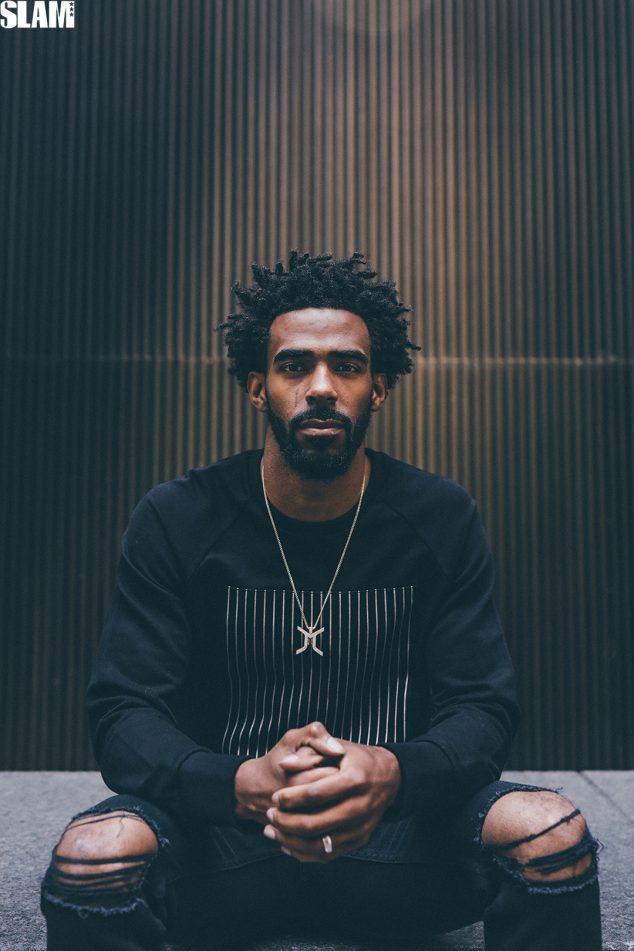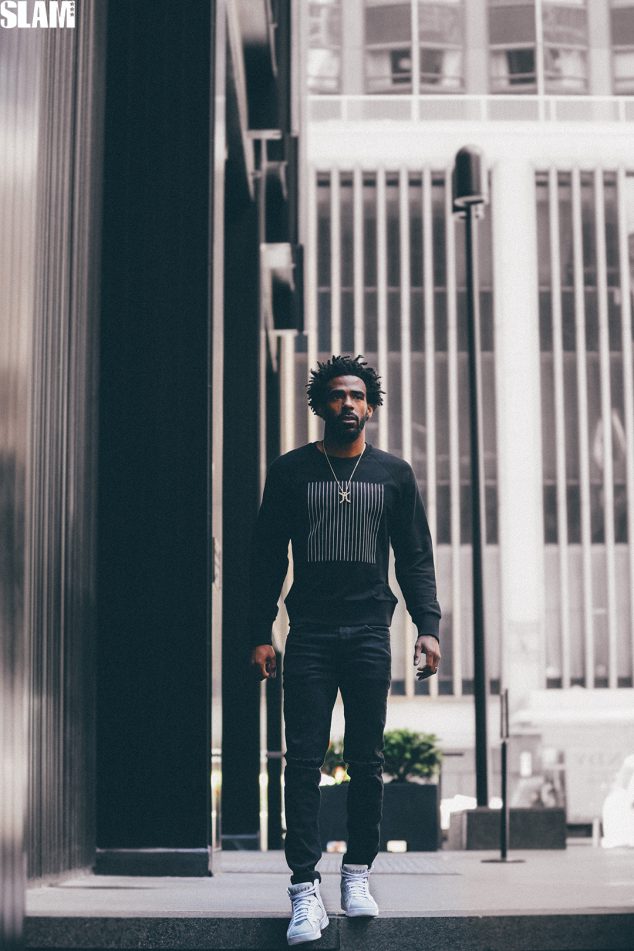We had to reschedule the interview portion of this story with Mike Conley. And for good reason.
The original plan was to do the photo shoot and interview all on the same day at a hotel in midtown Manhattan. But Conley has to bail early. Grizzlies minority owner Justin Timberlake invited the lefty point guard to Staten Island for an afternoon of golf. Can’t say no to JT.
So Conley, rocking a crispy pair of Air Jordan VIIs, casually asks how to get to the outer borough in between posing for the camera. We tell him he has to hop on a ferry to meet Timberlake.
This is how the ever-humble Mike Conley spends his days now—chillin’ with a multi-platinum, 10-time Grammy winner. Late night talk show appearances. A premier spot on Jordan Brand’s roster.
Safe to say the highest-paid player in the NBA has come a long way from his “underrated” label.

The craziest part is you’d never know that this dude is the face of an NBA franchise. He’s patient. He’s totally calm in every day life. He gives people time to talk. He listens and then genuinely responds. That kind of person isn’t usually the best player on an NBA team.
On the court, though, Conley’s not that nice. His humility and friendliness melt away, replaced entirely by a maniacal desire to win. The Grizzlies point guard just doesn’t want people to know about the fire that burns inside of him.
“For one, I guess I just don’t draw attention to myself and give away who I am,” Conley says. “It keeps me a little mysterious in my mind. People think that I’m just a quiet dude that doesn’t get angry. But they have no idea how fierce a competitor I am.”
The Spurs are aware of how scary Conley can be. The point guard put the Grizzlies on his back in the first round of this year’s playoffs, averaging 24.7 points per game while going toe-to-toe with Kawhi Leonard over the course of six games. He turned in a monster 35-point Game 4 performance that officially silenced any doubters.
Watching the tape from that game and then sitting next to Conley, things don’t add up. The man who was on the floor that night had a menacing look in his eye. He wasn’t going to be denied. He was yapping at the crowd, bobbing his head with a classic Y’all can’t stop me vibe. He got to the paint relentlessly, finishing with his patented floaters or over the top of the Spurs’ bigs. If he couldn’t make it to the tin, he was letting quick-trigger three-balls fly at will, sailing down from the rafters into the bottom of the net. Conley delivered in clutch moment after clutch moment.
Yeah, Conley’s living real good right now. But it took him years of hard work to get here.
“It was the second half of [my] second year,” Conley reflects. “I don’t know if our coach got fired at that time but I knew that people were getting shipped out, people were getting traded. I really felt that pressure of the uncertainty of what my job might be. [It] kept me locked in and focused on what I needed to get better to help the team.”
Conley realized that he could become a better leader, play with even more composure and increase his knowledge of the game. He was always fast (his father, Mike Conley Sr, won two Olympic medals in track and field) and he was always skilled, able to shoot and pass well. By following his former fiery teammates Damon Stoudamire and Kyle Lowry, he learned how to give his all and how to study the game.

“We all worked for it, we all had to wait in line, we all had our time,” Conley says. “For me, I had Damon Stoudamire, Kyle Lowry, all these guys that played in front of me. Those guys helped me—they helped my development by constantly competing, constantly learning.”
Conley would practice against Stoudamire and Lowry and then watch tape of Gary Payton. He started taking notes, comprehensively breaking down film. He paid close attention to how Payton used his body to position his defenders. He watched how The Glove controlled the game, zeroing in on how he used to point to where he wanted his teammates to go. Conley was all in on developing his mental strength.
“You really have to be vigilant in how you watch film,” Conley says. “You can’t just sit there and watch tape, blankly just stare at it and see what’s going on. It’s like comprehending when you’re reading. When you read something, you really go through it. Almost like studying for a test, constantly asking myself that question. ‘What does he do when there’s no other move he can make? Where is he going to go? He’s going left. What’s going to happen when you dribble too deep into the paint? They’re going to trap you.’ I start to put all that together and when game time comes, I already know where not to go, where to go and where to be.”
While waiting for his opportunity, Conley was in the lab, quietly, steadily increasing his points per game and maintaining his assists per game. By design, he never wanted to be in the spotlight. He just wanted to get better.
Then he found meditation. And that’s when his game went to the next level.
“Meditation is key,” Conley says. “Not even in sports, just in life, to find a balance, to find a clear mind.”
Conley was able to find more than a clear mind. His new outlook led him to the best season of his career. He played 69 games in 2016-17 and averaged 20.3 points and 6.3 assists on 40 percent three-point shooting. His improvement goes far beyond the numbers.
He established himself as a true professional, a workman who has the highly sought-after clutch gene. For the past few years, Tony Allen, Zach Randolph and Marc Gasol have shared the Grizzlies spotlight. They’d grind out games on defense and from the post. But the Grizzlies now belong to Conley.
Early on a spring Monday morning, Conley patiently sits in the empty restaurant of a downtown hotel. He smiles about his time on the links with Timberlake and says that they both nearly sank a hole-in-one. He stands up to reveal his new Jordan “Pure Platinum” Low XIIIs and smiles again when he finds out they don’t come out for more than a week. He talks more about his teammates and his parents than he does himself and never gives himself credit, despite the fact that he more than deserves it.
Even though the season didn’t end the way that he wanted it to, Conley’s satisfied.
“I wouldn’t have changed a thing about this year,” he says.
—
Max Resetar is an Associate Editor at SLAM. Follow him on Twitter @maxresetar.
Action photos via Getty Images. Portraits by Joseph Sherman.